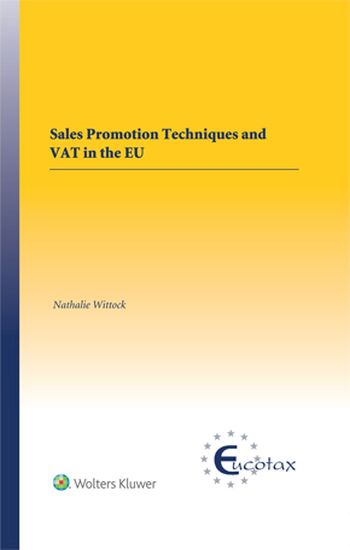
Sales Promotion Techniques and VAT in the EU provides more accurate and comprehensive information on how a more ideal and clear VAT treatment for the use of sales promotion techniques (SPTs) can be conceived, not only providing neutrality for businesses using SPTs but also respecting the other key principles and features of the VAT system. SPTs are a common facet of consumer life, with many companies offering price reductions, bonuses, or other deals in order to attract or retain customers. Although VAT on advertising costs is in principle fully deductible, problems frequently arise when products are supplied as part of a sales promotion. This book provides the first in-depth investigation of the extent to which the current VAT treatment in the EU of the various SPTs corresponds to the core properties of the VAT, with particular attention to the so-called neutrality principle.
What’s in this book:
With nuanced precision, the author catalogs the SPTs that are commonly used in practice. Then, revealing serious inconsistencies among the relevant rulings of the European Court of Justice, she goes on to propose specific amendments to the VAT Directive. Focusing on the importance for VAT of determining the presence of an SPT, she thoroughly analyzes such aspects of the VAT–SPT relationship as the following:
How this will help you:
With the finely tuned analysis presented in this book, readers can gain a good understanding of the current VAT treatment of sales promotion techniques and when these can currently (unjustly) result in a VAT cost. Practitioners can ensure an appropriate argumentation on the VAT treatment of SPTs with national tax authorities or before courts. As the first overall study on the VAT treatment of SPTs, clearly discussing the issues and legislative gaps and making concrete suggestions for future legislation, it is sure to be welcomed also by academics and EU policymakers.